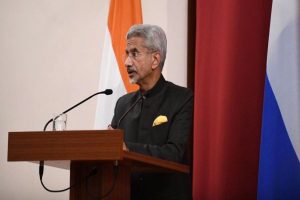At our last meeting, a pleasantly rambling conversation at a café on Highbury Corner, Ian Jack and I had started talking about family histories and writing about them.
This week I was supposed to meet him in London. I was on my way to London when I received a short text message from him: plans had changed, and he wouldn’t be able to meet me, he had collapsed on the island of Bute and had had to be airlifted to Paisley, where he was now in hospital. Would I also tell my aunt? I did; two days later she texted me back: ‘Ian died’.
It is widely known that you only really get to write about someone you know well after he’s dead. You can then write down all the things you wouldn’t have told him because they were too sentimental, too intense, or too personal even to tell someone you were close to; then you will delete them from your piece, and write a commonplace article instead, telling of their achievements and positive character traits. And if, as in this case, the person was also something of a public figure, you will take your place alongside the obituary writers who will tell of similar things.
Left to myself, though, this is how I would start my story: When newspapers were still an important part of the intellectual landscape of all literate people, there was a Scotsman who used to write about India and Britain. He was a journalist with a historian’s temperament, but fortunately, he’d never been to university, and he distrusted academic writing. He managed, when he was still a foreign correspondent, to get expelled from India during the Emergency. He used to be married to my aunt, which complicated the family’s stories because her sister was also married to Ian who wrote for newspapers. He was fascinated by the age of steam; his metaphors were built of steamships and railway journeys.
When my sister and I were still very young, he’d make up stories for us, or little rhyming poems, populated by personifications of Bengali sweets (the adventures of Satyajit Rabri, the travels of Laxmi Laddoo), illustrated in pen and ink; or he would do a quick pen-and-ink sketch of a steamship of the Cunard line on an Atlantic crossing to New York. As lightly as he held on to nostalgia, Ian keenly felt the romance of the Indian Railways. He once wrote a poem based on an Indian Railways timetable involving the 41 Up and 59 Down trains (and he probably knew exactly why they were so named). He could lyrically describe the waiting rooms in small railway stations across India, and speak with genuine affection about Barkakhana Junction, where you would change to a third-class train with wooden slats for benches and sit next to a man and his goat for the last leg of the journey to McKluskieganj.
It was in keeping with his spirit of respect for the industrial age that he taught me what a Meccano set was. That, I think, would be a more personal way of framing his life and career. Ian Jack was born to Scottish parents in Lancashire in 1945; his parents moved back to Scotland when he was about the age I was when I met him, and he served his apprenticeship as a journalist in Scotland, working for the Glasgow Herald before moving to London in 1970 to the Sunday Times, for whom he went to India as a foreign correspondent in 1976.
He helped set up, and he edited, the Independent on Sunday, from 1992 to 1995; when I arrived in England in the autumn of 1994, I stopped in London, and Ian gave me a short tour of its premises. Standing high up over the London docklands in the post-Thatcher real-estate speculative landscape around the Canary Wharf building that housed the iOS, he looked out of one window, towards the East India Company’s docks. ‘This’, he said, ‘is the avenue of the rise of capitalism. And, looking out in the opposite direction: ‘this is the avenue of the decline of capitalism.
As a long-term follower of and writer on the life and work of George Orwell (we discussed, a few years later, the circumstances that had turned Orwell into an informer for British intelligence, betraying his comrades and betraying a slight tendency to anti-Semitism that most of his fans have chosen to overlook), Ian used the term ‘capitalism’ as mild criticism. But he also counted the Indian capitalist G.D. Birla as a close-enough personal acquaintance to have visited his house on several occasions.
Then, from 1995 until 2007, Ian edited the literary magazine Granta. That a journalist by training should have spent so large a proportion of his career (a word he would have used with irony) editing a literary journal was not contradictory at all for a man of his abilities. Ian Jack was more of an essayist than a journalist, though he began to write at the tail end of an era when the two genres were closer to one another, and felicity with language was not considered either pretentious or an impediment to precision. The best of his long-form and less ephemeral writing is to be found in three collections of essays, Before the Oil Ran Out (1987), The Country Formerly Known as Great Britain (2009), and Mofussil Junction (2013). It was part of his remit, and of his personality, to take writing very seriously and to treat writers as slightly ridiculous.
After his twelve years at Granta, he gave himself the well-earned luxury of being a columnist for the Guardian with slightly more time for his own interests. One of the products of those interests was to have been a history book, on shipbuilding on the Clyde; it is still unfinished. His sense of historical detail dated back to an age before historical writing had become more formulaic than the lurid detective fiction of the 1950s. If there were signs that history as a discipline was losing its way then, it was those outside the profession who were often the first to notice.
Among Ian’s self-assigned tasks was to take his educational duties as an avuncular figure by marriage seriously, and in this role, he performed in a pretty ruthless fashion. Aged ten, I received from him Raymond Briggs’ Cold War comic-book album (there was no such thing then as a ‘graphic novel’), When the Wind Blows, which narrates the slow and inevitable deaths of an elderly couple, who had survived the Second World War, to post-nuclear attack radiation. I also remember an impromptu quiz on Beatles lyrics, after an idle remark on my part that I remembered all their lyrics: he finally caught me out on ‘Her name was McGill, she called herself Lil, but everyone knew her as Nancy’.
He once wrote about me that I knew the works of P.G. Wodehouse and the English geographies they contained far better than I ought to have without having been to England, and I cannot recall whether this was in part due to one of his presents to me, N.T.P. Murphy’s In Search of Blandings, about Wodehousian geography, or whether that book was his present to me to supplement the knowledge he thought I had already acquired. On my first trip to England in 1989, he took me to meet Hunter Davies, the official biographer of the Beatles; we discussed Davies’ remark in the book about John Lennon sending a postcard with Mussolini’s picture on it back to Brian Epstein in England from India during the Beatles’ Rishikesh sojourn with Maharishi Mahesh Yogi.
I asked to see the postcard – and it wasn’t a picture of Mussolini, it was of Subhas Chandra Bose, in a uniform he had plagiarised from Mussolini. If you travelled with Ian or recounted to him a railway journey, there was a good chance that he would tell you the histories of specific bridges in the industrial landscape that you had passed on the way. In 1985, Ian bought us all tickets from the small town of Starnberg to the smaller town at the end of the line, Tutzing, just for the joy of travelling on a Bavarian local train. The tickets, in those days, were cardboard rectangles with printed station names, and had to be physically clipped; the journey was the point, der Weg ist das Ziel. For a few years, our communication and meetings were very sporadic.
Those were the years he was raising a family, and I was starting an academic career that I found increasingly stifling. When we reconnected properly in the early 2000s, I told him that academic writing was a dead end: few people read it, academics wrote badly, and the whole venture of academics had been fatally compromised in a number of ways. He looked at me rather as one looks at a backward child who has just stumbled upon the self-evident, and promised to read my first novel when it was written (it still isn’t).
One of the privileges given to me as ex-nephew and fellow-writer in recent years was the occasional gatecrashing of the regular meetings in London of the two Ians, my father and Ian Jack, ex-husbands of the two Bagchi sisters, who would talk of newspapers, people they had known together, and the changes that the world had been through.
Our conversations in post-pandemic times were punctuated by a sense of wonder that the primary job of any writer now was, allegedly, to offend no one, even those who had been waiting to be offended without offering the writer the courtesy of reading their work. On the 31st of October, my father’s birthday, we raised a toast (Scotch, of course) to Ian Jack, and to the lives, he had lived.












